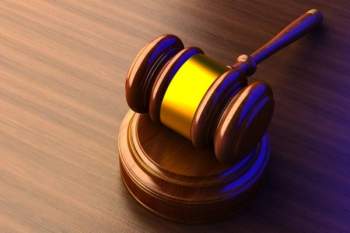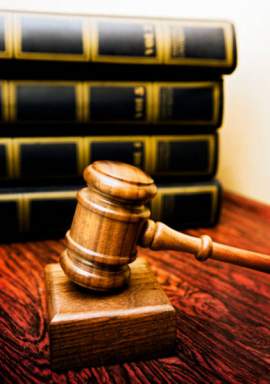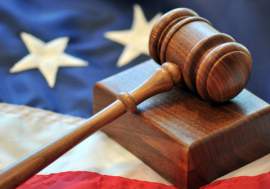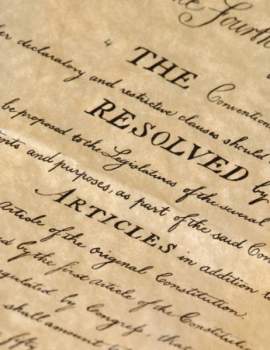
James Wilson

Founding Father: James Wilson
James Wilson was born in September the 14th, 1742 in Scotland. Here, he went to the Universities of St. Andrews, Glasgow, and Edinburgh. James Wilson never finished his studies or got his degree, since in 1765 he sailed for the New World. With the help of some letters of introduction, James Wilson became a tutor for a short time at the College of Philadelphia. Here, he received an honorary degree soon after thereafter. In November 1767, James Wilson was admitted to the bar, meaning he could practice law. James Wilson set up a practice in Pennsylvania in 1768. His practice was very successful, mostly because he handled almost half of the cases that were charged in the country court.
In 1774 James Wilson went to a provincial meeting, as the representative of Carlisle, where he was elected as a member of the Committee of Correspondence. He wrote an article called "Considerations on the Nature & Extent of the Legislative Authority of the British Parliament." In this pamphlet, he said that the British Parliament had no right to pass laws for the America colonies. The pamphlet was published, and later it found its way all the way to Continental Congress, where it was read widely and commented on.
In 1775 James Wilson became a member of the Continental Congress, alongside many radical members who demanded separation from Britain government. James Wilson's speeches were often commented on favorably by members of Congress. However, he was in a bind. Pennsylvania had mixed feelings regarding this issue of separation from the British government, and James Wilson would not vote against the will of his constituents. Some members thought that it was very hypocritical of James Wilson to argue so strongly for Independence, only just to vote against it.
With the support of three members who understood his position, James Wilson managed to delay the vote for three weeks, so that he could talk it over with people back in Philadelphia. When the vote happened, James Wilson was able to affirm his state’s desire for Independence.After the Declaration of Independence, James Wilson attention went back to his state. In Pennsylvania, a new constitution was being proposed. James Wilson was strongly against it.
Because of this, he was recalled for two weeks in 1777 from Congress, but no one would replace him, so he was put back until the end of his term. After his term finished, James did not go back home. James Wilson stayed in Annapolis for the winter, and then settled back in Philadelphia. He also resumed some parts of his law practice, except now he only consulted to corporations.
James Wilson was a leader in the Democratic-republican party. Unfortunately, he went back to his activities in speculation, which resulted in a large amount of debt. In 1779, he was appointed to serve as its US advocate general to France for maritime and commercial enterprises. Wilson was also elected to Congress in 1782. In 1784, he was appointed to attend the Constitutional Convention. After ratification of the new Constitution, Wilson looked for an appointment to the Federal government, and was made an Associate Justice of the Supreme Court by Washington in 1789.
The rest of his life was not very good. Wilson’s wife had passed away in 1786. He had destroyed his finances and spent time in a debtor’s prison. By 1798, James Wilson’s health was getting worse and worse. He often complained of mental fatigue and not being able to work. He died on August 28 of the same year while traveling to North Carolina to visit a friend.
Fun Facts About James Wilson
• When we went to debtor’s prison, he was still a Justice in the Supreme Court.
• James Wilson was attacked by a mob of working class people during the Revolution because he was suspected of hoarding goods, like wheat, to make the prices rise. This event is now called “Fort Wilson Riot.”
NEXT: Thomas Jefferson




















